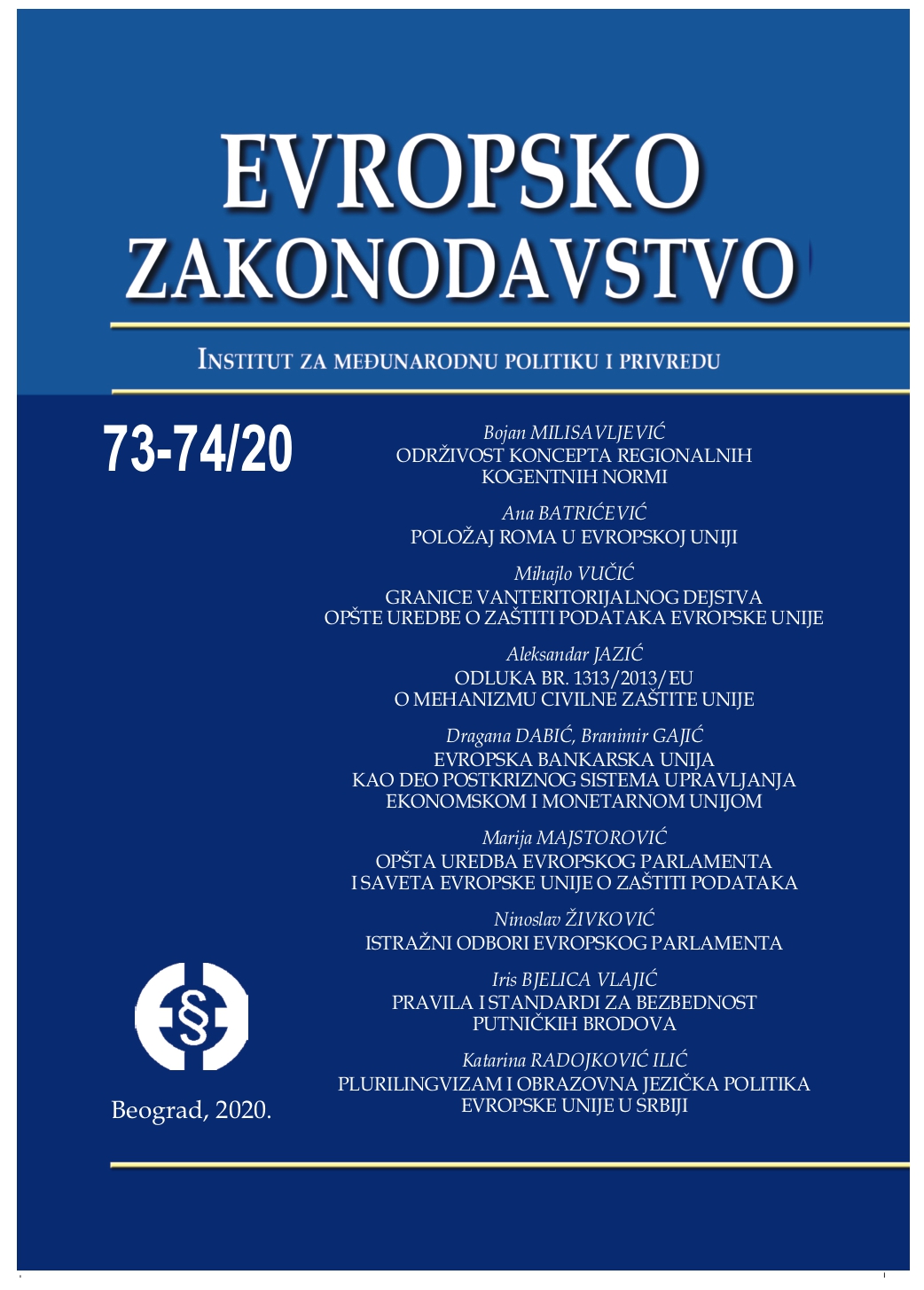Evropska bankarska unija kao deo postkriznog sistema upravljanja ekonomskom i monetarnom unijom
European Banking Union as part of the post-crisis governance system of Economic and Monetary union
Author(s): Dragana Dabić, Branimir GajićSubject(s): Politics / Political Sciences, Law, Constitution, Jurisprudence, Law on Economics, EU-Legislation
Published by: Институт за међународну политику и привреду
Keywords: Economic and Monetary Union; Banking Union; European Union crisis; post-crisis governance system; European Central Bank; supranational; economic governance; technocratic governance; democratic deficit
Summary/Abstract: The paper examines the assumption that the project of building the European Banking Union represents the most significant transfer of economic competencies to the European Union since the decision on the centralization of monetary policy. The goal of the paper is twofold. The architecture of the Banking Union is considered first, primarily on the basis of the sources of European law. Thereafter, the broader implications of the integrated financial framework are considered, primarily expectations regarding further centralization of competences at the Union level. For now, the establishment of the first two pillars of the architecture of the Banking Union has been set up – the Single Supervisory Mechanism and the Single Resolution Mechanism. However, the Banking union with its current setup did not achieve the goals set by European statesmen and Union officials. It is still incomplete. In order to complete it, it is necessary to setup its third pillar – the European (supranational) deposit insurance mechanism. Itis concluded that in the future, this project will be the playground for further institutional reforms in the direction of a “genuine“ Economic and Monetary Union.The way in which the governance system in the euro area is definitely shaped, interms of relations between the central level and the member states (federal principle versus return to lower levels of integration), aswell as, relations between the members themselves (principle of democratic equality versus undemocratic pattern of superiority and subordination), will have crucial impact on the future of the European unification project. It is necessary to take further steps in order to legitimize relations between political actors, functioning of the institutions and insufficiently transparent supranational decision-making processes.
Journal: Европско законодавство
- Issue Year: 2020
- Issue No: 73-74
- Page Range: 73-98
- Page Count: 26
- Language: Serbian

